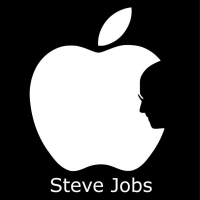Can Steve Jobs' Reality Distortion Field Help You Be Extraordinary?

Jobs, the biographical film about the life and times of Steve Jobs, was recently released. One of the aspects of Jobs' life that was highlighted in the film was his shunning reality by disowning the paternity of Chrisann Brennan's daughter. This scene brought forward an aspect of his personality, famously referred to as reality distortion field (RDF). The RDF was said to be Steve Jobs' ability—with a mix of charm, charisma, bravado, hyperbole, marketing, appeasement, and persistence—to convince himself and others to believe almost anything.
Jobs lured the talent within Apple to work on Macintosh during the early years. As stated in the book Steve Jobs: Genius by Design, Jobs said, "The Mac team are pirates, and the rest of Apple is the Navy. We're going to show them why it’s better to be a pirate. We're gonna work 90 hours a week, and we're gonna love every minute of it." That was pure RDF at play, and people who heard him—even those brought in to work atrocious hours to get results—applauded him loudly.
Leaders using RDF inspire others to an altogether different level. Jobs helped people look beyond the obvious and internalize the bigger picture. The key components of a leader who embraces RDF include:
- Reframing the problem by simplifying the context
- Being persuasive without necessarily sounding so
- Inculcating an element of impossibility
- Having a ruthless disregard for reality
- Exhibiting an unquestionable commitment
- Having a non-negotiable attitude toward solving problems with perfection
The inverse of the Dunning-Kruger effect suggests that competent people tend to underestimate their ability when compared to others. For such people, RDF would lend enough motivation to take on problems bigger than themselves, which they otherwise would not have even considered taking on. Thus, RDF could help competent people reach their best potential. Applied personally, RDF could lead to breaking crystallized thought patterns and help employees come up with out-of-the-box solutions.
The other side of the argument of course is: Do all jobs require us to do the impossible every day? In reality, for every rule that gets broken, there are many that get followed. Organizations would become chaotic places if rather than accepting realities, people looked to distort reality every time. It would likely work for situations that require complete transformation but not necessarily for the routine software development and testing jobs. One of the by-products of RDF is self-deception, and misleading yourself toward unrealistic goals could have grave professional ramifications.
It is said that RDF unquestionably helped Jobs revolutionize as many as six separate industries—personal computers, animated films, digital music, cell phones, tablet computing, and digital publishing. It worked fantastically for him professionally, but the overall picture suggests that RDF can really be a two-edged sword and needs to be embraced with care.
What do you think?

